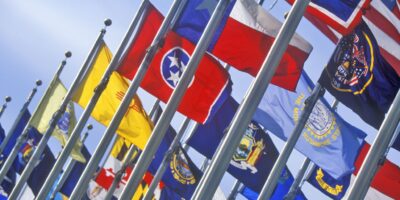Lockdowners Speak with Privilege, and Contempt for the Poor and Working Class

The Great Barrington Declaration, signed last weekend, has unleashed a torrent of criticism. This was to be expected, since it conflicts with the public health prescription that has attained a religious-like status in many circles: lockdowns and social distancing must be enforced in order to stop or slow transmission of the coronavirus.
The authors of the Declaration, three of the world’s most renowned epidemiologists, urge an entirely different approach. Those not vulnerable to severe illness and death from the virus – especially children and younger adults – should live as they did pre-March 2020. Doing so will, within a couple of months, generate herd immunity, allowing communities to return to relative normalcy.
The overwhelming majority of condemnation that the Declaration has received does not bear on the substance of its recommendations. Instead, critics accuse the primary signatories of having a subversive, right-wing economic agenda, particularly since the Declaration was created and signed at the American Institute for Economic Research, a think-tank that pushes evidence-based economics and functioning markets.
As someone who was present for the weekend and made a small contribution to this effort, I can attest to right-wing ideology having played no part in formulation of the treatise or the scientists’ motivations for participating. The disastrous economic effects of the lockdowns, and the inherent violations of human rights that they entail, have brought together people from different ends of the political spectrum.
I am a left-leaning New York City public defender who voted for Bernie Sanders in the 2016 primaries and Hillary Clinton in the general election. I have never voted for a Republican candidate. I chose my career because I wanted to help those most defenseless in our society: indigent people accused and convicted of crimes and facing the awesome power of the state.
Until I saw the catastrophic effects that the lockdowns were having on the very people I sought to help, I had never been associated or affiliated with any free-market or right-wing institutions. I am not alone in this. Having spoken with the three scientists — Jay Bhattacharya, Sunetra Gupta, and Martin Kulldorff — on numerous occasions over the course of the weekend, I can say with certainty that neither politics nor free-market ideology had anything to do with their decision to write the Declaration. They are motivated solely by a concern for public health and distress at what lockdowns and various other social distancing policies are doing to human beings. In my experience over the past few months, that, and nothing else, is the common thread uniting anti-lockdowners.
Ironically, it is the Declaration’s most prominent critics, rather than its authors, who are politically motivated. Not least among them is Gregg Gonsalves, a Yale epidemiologist who has emerged as one of the most vocal and qualified detractors of the Declaration, which he has, in nuanced fashion, dubbed “bullshit” and “bad science.”
Gonsalves’s writings and social media posts over the past six months make his agenda plain. In April, Gonsalves co-authored an editorial in the British Medical Journal blaming President Trump for the pandemic and the deleterious effects of countermeasures effectuated in response to it. According to Gonsalves, the President’s “most dangerous act” was to support the
mass public protests by his supporters to “liberate” states from their stay-at-home orders, specifically targeting states with Democratic governors . . . By encouraging armed insurrection, said Washington state governor Jay Inslee, Trump is “putting millions of people in danger of contracting covid-19. His unhinged rantings and calls for people to ‘liberate’ states could also lead to violence.”
Nor did Gonsalves confine his attacks to the President. He went after the protestors themselves, calling the anti-lockdown demonstrations “pro-coronavirus rallies” and suggested, without any evidence, that nefarious forces were behind them.
Yet just a month or so later, Gonsalves signed on to a letter with 1,200 other health professionals lauding the Black Lives Matter [BLM] protests as “vital to the national public health” and then authored a piece defending the movement. In an attempt to stave off accusations of hypocrisy for condemning one form of protest as a “most dangerous act” while condoning another as vital to public health, Gonsalves claimed that
The [anti-lockdown] protesters’ response was grounded in the president’s own antipathy to protecting the public health. In contrast, the recent protests against police violence, despite the risks of transmission of SARS-COV-2 involved, can be thought of as pro–public health in some ways: ending police violence and confronting racism require political action, as these excess causalities are more than anything else deaths by public policy and require a public response.
Gonsalves further differentiated the two types of protests by arguing that the BLM protestors wore masks, and the anti-lockdown protestors did not. But if his genuine interest was public health, not politics, he could have suggested that the anti-lockdown protestors wear masks, or limited his critique to the alleged presence of guns at the rallies, instead of repeatedly and vociferously denouncing the entire enterprise.
His position simply betrays a breathtaking lack of empathy for the plight of people, particularly members of the working class and the poor, who lost their livelihoods and ability to educate their children as a result of lockdowns.
As a supporter of both movements, it is obvious to me that police violence towards people of color and stripping people of their ability to support themselves and educate their children present dangers to the community. Gonsalves’s refusal to recognize the legitimacy of the pain experienced by the latter group and attempts to smear its mission as dangerous to public health is evidence that his view stems from his political leanings, not science or public health.
In a similar vein, last month Gonsalves chastised Martin Kulldorff for an interview with Jacobin Magazine in which Kulldorff endorsed a similar approach to that put forth in the Declaration. After deeming Kulldorff’s proposals, published in the country’s most far left news outlet “Trumpian,” the ensuing exchange made evident that, astonishingly, Gonsalves had not yet read the interview. His eagerness to dismiss arguments he had not even bothered to review should cast significant doubt on the validity of his policy recommendations.
As Kulldorff aptly noted, there is no such thing as “Trumpian epidemiology.”
A few days ago, Gonsalves wrote a piece in the Nation addressing the Declaration itself. His first several paragraphs seek to delegitimize the strategy it advocates by linking it to the Trump administration and Scott Atlas, one of President Trump’s health care policy advisors, since Atlas holds views similar to those of the Declaration’s authors, and the three scientists met with him and Health Secretary Alex Azar after signing it in Great Barrington.
He has likewise tried to discredit the Declaration on Twitter as the product of a “Climate Science Denial Network” and attacked Kulldorff for “hanging out at right/libertarian think-tanks.” This is all proof that Gonsalves’s opposition to the Declaration is not scientifically based. Rather, he is cynically politicizing the pandemic in order to advance his ideological beliefs.
Gonsalves’s substantive criticisms of the Declaration fare no better. His most salient argument is that a large portion of the American population fall into the vulnerable category, and so they cannot simply be sequestered and protected. Therefore, he claims, the concept of achieving herd immunity is fundamentally flawed.
I addressed that criticism at greater length here, and another analysis can be found here, but to reiterate briefly, Gonsalves’s ready dismissal of the Declaration requires ignoring the severe harms that lockdowns and social distancing are visiting upon the world. Gonsalves also makes the conclusory claim that “’focused protection’….has already been tried without success” in Sweden.
But Sweden, which imposed only minimal restrictions, did not implement mask-wearing as a national policy, and relying upon voluntary social distancing to slow the spread of the virus is not the failure that Gonsalves and the New York Times have made it out to be. Sweden had a higher death rate early on than its Scandanavian neighbors, Denmark and Norway, but it currently has a lower per capita death rate than many countries, including the United States and the United Kingdom.
It was widely acknowledged that at the beginning, Sweden ought to have done more to protect people in nursing homes, which accounted for around half of the country’s death toll. Now, unlike many other countries in the Northern Hemisphere, it is not seeing a resurgence of coronavirus cases and considers itself well-positioned to handle any additional spike.
Given that Sweden is more or less functioning as usual, it is incredibly myopic to dismiss it as a catastrophe, as though the only measure of a successful approach is a low number of deaths from the coronavirus, without regard to the harm that lockdowns are inflicting on people around the world. While Gonsalves claims that Sweden is far from herd immunity, presumably because the percentage of Swedes with coronavirus antibodies is low, it is settled science that reactive T cells confer protection that labs typically do not measure, and thus the portion of the population that is immune or partially so is much higher than antibody tests can measure. Surely, as an epidemiologist at a top institution, Gonsalves knows this.
Furthermore, if Gonsalves’s position is motivated solely by concern for the forty or fifty percent of the American population that is vulnerable to severe illness from a coronavirus infection, it is puzzling that he does not focus some of his efforts on advocating healthier living. Studies have reported that “many of the sickest COVID-19 patients have been people with obesity.” Conditions linked with obesity such as heart disease, lung disease, and diabetes also result in severe illness more often.
A significant portion of the population that is susceptible to severe illness could have become healthy in the past seven months through lifestyle changes, as Dr. David Katz has observed. Yet, public health professionals like Gonsalves have remained silent about people’s ability to change their risk level through their own actions (I am not suggesting that all vulnerable people or even all obese people have control over their health, only that many do).
Gonsalves’s arguments simply do not withstand rational analysis, and are emblematic of the substantively deficient criticism coming from those who oppose the Declaration. Combined with his previous writings and public statements, it is clear that his stance was formulated not based upon a dispassionate attempt to propagate policies that are in the public interest, but by a desire to prove that President Trump’s initial laissez faire response to the coronavirus was wrong and, presumably, ensure that he does not remain in office for a second term.
Undoubtedly, Gonsalves is an excellent scientist, but his opinions about the course of action we should take in response to the coronavirus have nothing to do with his professional qualifications, and everything to do with his political views. To the extent that he has attempted to smear Bhattacharya, Gupta, and Kulldorff as acting to further some covert right-wing political agenda, this is simply a classic case of Freudian projection.












